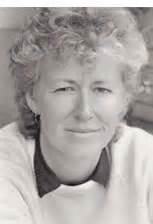A Quote by Jennifer Lopez
Whenever it feels uncomfortable to tell the truth, that's often the most important time to tell it.
Quote Topics
Related Quotes
Most of us avoid telling the truth because it's uncomfortable. We're afraid of the consequences-making others feel uncomfortable, hurting their feelings or risking their anger. And yet, when we don't tell the truth, and others don't tell us the truth, we can't deal with matters from a basis in reality.
Sometimes I don't tell the truth, which is telling the truth about not telling the truth. I think people don't tell the truth when they're afraid that something bad's going to happen if they tell the truth. I say things all the time that I could really get into trouble for, but they kind of blow over.
The issue is that when you're a critic it's hard to tell the difference between the thrill of denouncing and telling the truth. Telling the truth to me feels more often like denouncing than like praising. There are many more concrete advantages in the world for people who praise than for those who denounce. So if you want to tell the truth, oftentimes you're going to err on the side of denouncing. That's just something I have to work on.
I have a hard time with historians because they idolize the truth. The truth is not uplifting; it destroys. I could tell most of the secretaries in the church office building that they are ugly and fat. That would be the truth, but it would hurt and destroy them. Historians should tell only that part of the truth that is inspiring and uplifting.
Because everybody lies. It's part of living in society. Don't get me wrong-I think it's necessary. The last thing anyone wants is to live in a society where total honesty prevails. Can you imagine the conversations? You're short and fat, one person might say, and the other might answer, I know. But you smell bad. It just wouldn't work. So people lie by omission all the time. People will tell you most of the story...and I've learned that the part they neglect to tell you is often the most important part. People hide the truth because they're afraid." -Jo
So often with beginning writers, the story that they want to start with is the most important story of their life - my molestation, my this, my horrible drug addiction - they want to tell that most important story, and they don't have the skills to tell it yet, so it ends up becoming a comedy. A powerful story told poorly becomes funny, it just makes people laugh behind their hands.
What makes a good follower? The single most important characteristic may well be a willingness to tell the truth. In a world of growing complexity leaders are increasingly dependent on their subordinates for good information, whether the leaders want to hear it or not. Followers who tell the truth and leaders who listen to it are an unbeatable combination.



































